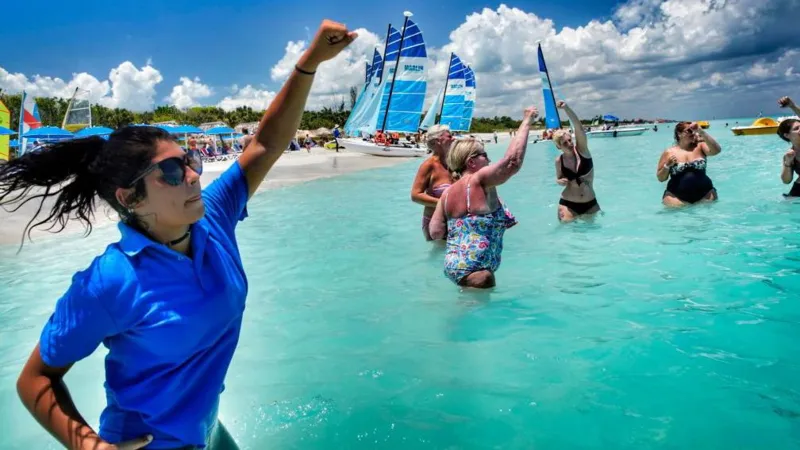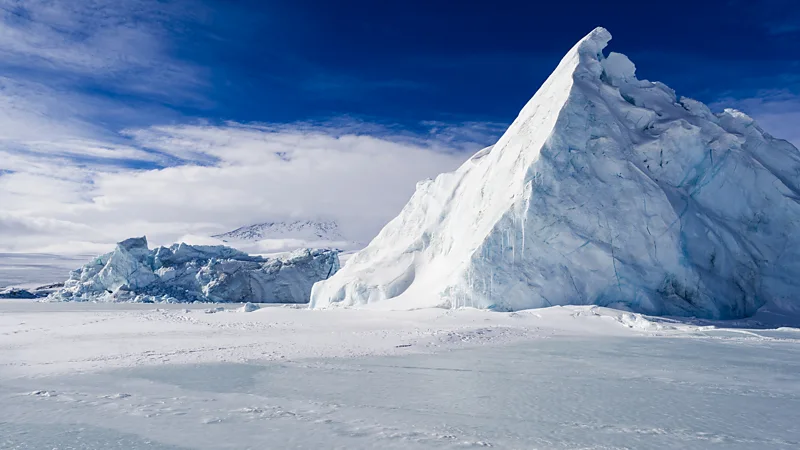Latest News
Hit by blackouts, Cuba’s tourism industry now braces for Trump

With winter nights drawing in across North America, Canadian “snowbirds” – citizens who flee their freezing temperatures for sunnier climes every year – are planning their annual trips to Florida or the Caribbean.
Traditionally, Cuba has been hugely popular among Canadians, drawn to the pristine white sands of beach resorts like Varadero.
They fill the void left by Americans wary of the travel restrictions imposed on them under the continuing US economic embargo of the largest island in the Caribbean.
Figures show that almost one million Canadian tourists visited Cuba last year, the top country of origin for visitors by some margin.
As such, a recent decision by the Canadian tour operator, Sunwing Vacations Group – one of Cuba’s leading travel partners – to remove 26 hotels from its Cuba portfolio is a blow to the island’s struggling tourism industry.
Sunwing took the decision after Cuba endured a four-day nationwide blackout at the end of October, caused by failures with the country’s aging energy infrastructure.
This was followed by another national power cut last month, when Hurricane Rafael barrelled its way across the island, worsening an already-acute electricity crisis.
A third countrywide blackout then happened on Wednesday, 4 Dec, after Cuba’s largest power plant broke down.
“Cuba has had some volatility in the last few weeks and that may shake consumer confidence,” Sunwing’s chief marketing officer, Samantha Taylor told the Pax News travel website last month.
“There are incredible places to go in Cuba,” she stressed, keen to emphasise that the company isn’t pulling out of Cuba altogether. “But we also recognise that if clients are a little uncomfortable, we need to give them options.”
Specifically, that involved drawing up a list of what they called “hidden gems” – alternative holiday destinations in the Dominican Republic, the Bahamas and Colombia.
Latest News
World Bowls Tour revokes ban on Israeli bowlers

Israeli players will be allowed to compete in January’s World Indoor Bowls Championships after tournament organisers revoked a ban imposed amid a campaign by pro-Palestinian groups.
The World Bowls Tour (WBT) had said in a statement that invitations issued to three Israeli players for the event in Hopton-on-Sea, Norfolk had been withdrawn.
That came after a “significant escalation in related political concerns” following the involvement of Israeli bowlers at the Scottish International Open in August.
The WBT said the decision “was not taken lightly” and had been made “in the best interests of the event’s success and integrity”.
But in a new statement on Tuesday, it said Daniel Alomin, Amnon Amar and Itai Rigbi could now compete after “significant additional security measures” had been put in place.
Alomin will play in the World Open Singles, while Amar and Rigbi will feature in the World Open Pairs.
The WBT acknowledged it had been “a difficult time for all involved” and was pleased to reach an outcome that “includes players for all supporting countries”.
MP Rupert Lowe, whose Great Yarmouth constituency includes Hopton-on-Sea, welcomed the decision.
Lowe, who said he was “genuinely disgusted” the players had been banned, wrote on X: “The Israeli team will be welcomed in Great Yarmouth, and I wish them well for the event.
“The World Bowls Tour have made the right decision.”
The tournament organisers had faced pressure from several pro-Palestinian groups, including Palestine Action and the Palestine Solidarity Campaign, to introduce the ban.
The Norfolk Palestine Solidarity Campaign had urged its supporters to sign a petition calling for the players’ invitations to be rescinded.
In its campaign, the group accused Israel of committing apartheid against Palestinians and called for its athletes to be banned under the 1977 Gleneagles Agreement – originally signed to exclude South Africa.
Israel strongly denies accusations of apartheid.
The Board of Deputies of British Jews described the initial ban as “an overt act of discrimination against Israeli participants”.
A government spokesperson told BBC Sport the decision was a matter for international sport federations and the national representatives to these federations but added it was “deeply disappointing”.
The sport’s governing body, World Bowls – which is separate to the World Bowls Tour – had stressed Israeli players were still welcome to play in its events.
The 14-month war between Israel and Hamas began when Hamas-led gunmen carried out an unprecedented attack on southern Israel on 7 October 2023, during which about 1,200 people were killed and 251 others were taken hostage.
More than 45,000 Palestinians have been killed during the war, according to figures from Gaza’s Hamas-run health ministry.
The figures are often disputed by the Israeli government, which says almost 20,000 “terrorists” have been killed, but they are broadly accepted by United Nations agencies.
Israel was initially banned from last year’s Ice Hockey World Championships, but the decision was later reversed.
Across other sports, there has been no ban on Israeli athletes – or the country’s national teams.
The Palestine Football Association has called for its Israeli counterpart to be suspended by world governing body Fifa, but no decision has yet been taken.
Fashion
Female pop stars celebrate a record-breaking year

From Taylor Swift to Charli XCX, women had a record-breaking year on the British charts, according to new figures from the British Phonographic Institute (BPI).
Female pop artists topped the singles chart for an unprecedented 34 weeks – the highest ever figure.
Twenty-one of those weeks belonged to Sabrina Carpenter, whose hit singles Espresso, Taste and Please, Please, Please dominated the second half of the year.
Women were also responsible for half of the year’s biggest-selling albums, with Taylor Swift’s Tortured Poets Department leading the pack.
Entertainment
Mushy ice and lost kit: The scientists studying Antarctica as it melts

With Antarctica’s climate warming at an unprecedented rate, scientists are battling with dangerously thin ice and equipment falling through into the sea beneath.
For 20 years, Simon Morley has been cutting holes in Antarctic sea ice and diving into the frigid waters below to study strange and colourful sea life – including sea squirts and sponges. But climate change is thinning out this ice, meaning it is often no longer safe enough to travel over.
“‘We’d get 100 or more dives through the sea ice in the winter period [in the past],” says Morley, a marine biologist with the British Antarctic Survey (BAS). “Last year, I think [my colleagues] managed maybe five to ten dives through the sea ice.”
The ice is creating a Catch-22 situation. “It’s too thick for them to get the boats out but it’s not thick enough to cut holes in with the chainsaw and actually do the diving,” he explains. A helpful way around this, however, is to keep boats ready and standing by during the winter, so that they can launch immediately when a window opens to use them, he says.
-

 Entertainment5 months ago
Entertainment5 months agoEarthquake scientists are learning warning signs of ‘The Big One.’ When should they tell the public?
-

 International5 months ago
International5 months agoTarar accuses Imran Khan of conspiring with Faiz Hameed to destabilise Pakistan
-

 International2 months ago
International2 months agoPTI Announces Not to Boycott New Committees
-

 Business3 months ago
Business3 months agoMajor Corruption Scandal Uncovered at WASA Multan: Rs1.5 Billion Embezzlement Exposed
-

 Business4 months ago
Business4 months agoThe Impact of QR Codes on Traditional Advertising
-

 Business4 months ago
Business4 months agoThe Benefits and Problems of International Trade in the Context of Global Crisis
-

 Business4 months ago
Business4 months agoFraud by Pakistani Firm Sparks Outrage in Business Community; Concerns Rise Over International Investment
-

 Business2 months ago
Business2 months agoHigh Court Blocks MDCAT Merit List Amid Controversy Over Exam Error






